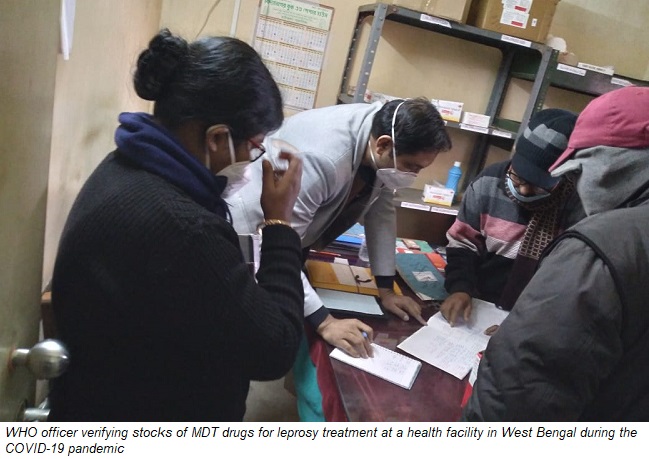Leprosy Day is observed in India on 30 January, which marks the Martyrdom Day of Mahatma Gandhi.
The National Leprosy Eradication Programme of India is paving the way for a leprosy free-India.
Leprosy is a curable disease but if it is not detected and treated early, it can cause permanent deformities and disabilities. Historical stigma against the disease, however, prevents many from seeking treatment and care.

Leprosy cases are declining in India, but not rapidly enough. In 2019-20, 114,451 new leprosy cases were detected in the country, which account for 80 percent of the cases of South East Asian countries and 56.6 percent of the global new cases of leprosy. The states of Bihar, Maharashtra, Uttar Pradesh, Odisha, Chhattisgarh, Madhya Pradesh, West Bengal, Jharkhand contributed 76 percent of the new leprosy cases.
The World Health Organization (WHO) provides multi-drug therapy free of cost for leprosy treatment to all endemic countries, including India.
WHO advocates an integrated approach to control neglected tropical diseases (NTDs) of the skin and enhance early detection, timely treatment, morbidity management and disability prevention. Screening and contacts and treating eligible contacts with single-dose rifampicin can accelerate the annual decline.
The soon-to-be-launched WHO Global Leprosy Strategy 2021-2030 lays down the long-term vision of ‘zero leprosy' with no new infections, no disease, no disability, and no stigma and discrimination. The strategy envisages extending an umbrella of services to persons affected by the disease by not restricting to treatment with drugs and rehabilitation but also address the mental health issues associated with the disease.
WHO has launched the Road Map for Neglected Tropical Disease 2021-2030 on 28 January 2021 to strengthen programmatic response to NTDs through shared goals and disease specific targets backed by smarter investments, stronger accountability, integrating delivery platforms; mainstreaming with local health systems, and strengthening country capacity.
